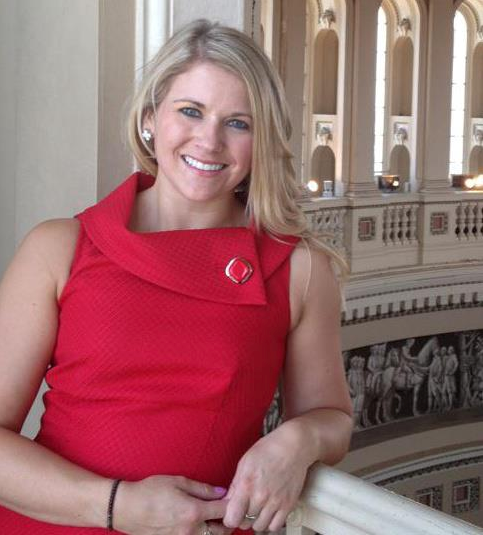Ashbrook Alum Named to Elite List of Rising Foreign Policy Stars
December 24, 2020


Ashbrook Scholar alumna Caitlin Poling ’08 has just been named one of the “Top 99 Under 33 Foreign Policy Leaders” by Diplomatic Courier, a Washington-based global affairs magazine. Poling, who works at Foreign Policy Initiative (FPI), a non-profit research organization also in DC, joins an elite international list of “millennial” generation leaders spanning a range of fields—economic development, health care, information technology, diplomacy, to name a few—and deploying a range of tools to promote solutions to global problems. Poling, who is 27, was honored as one of eighteen notable “influencers” whose work “mobilizes people in the foreign policy community with bold new ideas,” writes the selection committee for the magazine.
Poling graduated from Ashland University in 2008 with majors in political science, international relations, and French. She has since earned a Master’s in International Security at Georgetown University and worked as a staff member for two Congressmen, Bob Latta (R-Ohio) and Mike Pompeo (R-Kansas). As a legislative assistant for Pompeo, Poling covered foreign affairs, homeland security, and immigration—as well as human rights, leading initiatives with the International Religious Freedom Caucus for the rights of persecuted religious minorities in Hungary and Nigeria.
Now Director of Government Relations at FPI, Poling works in a pivotal position, since the organization serves “as a transmission belt to connect leading scholars and experts in the foreign policy and defense world with key staffers on Capitol Hill.” Poling builds and maintains a network of staffers and Congressmen on Capitol Hill “who follow our research and policy analysis,” making sure “that what we’re writing gets into the hands of policy makers. I give monthly briefings on the Hill on such topics as Syria, Iran, and Al Qaeda.” Poling also directs the Congressional Scholar program, a ten-week summer program for rising Congressional staffers.
Poling wrote her Master’s thesis on Boko Haram, a Nigerian terrorist group that has directed violence against both Christians and mainstream Muslims. She continues to follow her specialty areas of Africa, terrorism, and drone policy, writing articles for Huffington Post and e-International Relations.
These are large accomplishments for a person who finished her undergraduate coursework only five years ago. Poling says her education as an Ashbrook Scholar helped her quickly earn a role in the foreign policy community. While Poling says “the Ashbrook name carries a lot of weight in DC” and “having that name on my resume really helps open doors,” more important to her than the label are the skills and knowledge she gained as a Scholar. Sitting with donors and sometimes the featured speaker at major lecture luncheons, Poling honed the poise she brings to public discussions of government policy, while learning to be an informed questioner at comparable events she attended as a summer intern with The Heritage Foundation.
But this enhancement of confidence also only goes so far. The greatest gift of an Ashbrook education is time spent reading classic works of political thought and learning how to think through them. Students from other programs often arrive in Washington unable “to articulate why they believe what they believe.” Because Ashbrook Scholars read “not only what the Founders wrote, but also the great texts they read and that influenced them,” they come to understand “our core national principles,” Poling says. One needs this as a basis on which to “judge current policy. Once you embark on a career, you don’t really have time to go back and read the classics slowly and carefully, discussing, debating, and digesting them.”
Asked by the Diplomatic Courier to name the assets most needed for successful foreign policy work, Poling named “an understanding of history, conviction in one’s beliefs, and a willingness to listen to opposing views to really parse out options in decision making.” These assets are products of an Ashbrook education; they are the intellectual capital on which Poling—along with other Scholars supported by our friends and donors—are building careers of public service.

